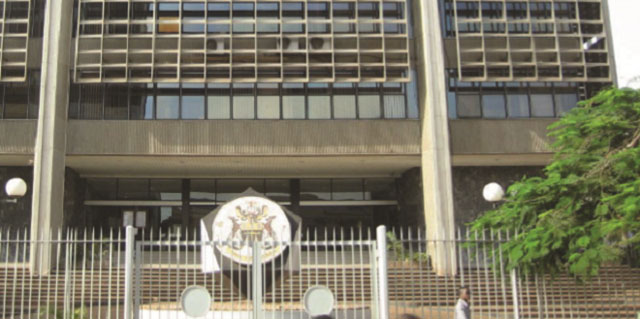
BoU, UEDCL and Mandela National Stadium listed amongst those in red
Kampala, Uganda | JULIUS BUSINGE | Uganda’s state-owned enterprises seem to be bleeding. The latest Auditor General’s report shows that five out of the 29 state owned enteprises recorded losses in the recent two consecutive years.
They include; Bank of Uganda (BoU) whose loss reduced from Shs 164bn in FY2015/16 to Shs 72bn in FY2016/2017; Uganda Electricity Distribution Company Limited whose loss increased from Shs 9bn in FY2015/16 to Shs 16bn in FY2016/17; Mandela National Stadium loss almost doubled from Shs 323 million in FY2015/16 to Shs 669 million in FY2016/2017; Uganda Seeds Limited’s loss reduced from Shs 67 million in FY2015/16 to Shs 48 million in FY2016/17 and NEC Tractor Project recorded a loss of Shs 126 million in FY 2015/16 compared to Shs 31million in FY2016/2017.
The Auditor General, John Muwanga, cited poor corporate governance, wasteful expenditure, and inadequate staff in some of the enterprises as some of the reasons behind the entities poor performance. He also cites government’s laxity in monitoring these enterprises.
“Government is advised to review the operations of these enterprises with a view of turning them into profit making organisations,” the AG’s report reads in part.
He also said management of the affected entities needs to ensure adequate financial planning and adherence to regulatory requirements in order to avoid wasteful expenditure.
Beyond the five enterprises that recorded losses for two consecutive years, the report notes that 10 companies witnessed a decrease in profitability while 16 recorded improvement in profitability during the same period under review.
For instance, Kilembe Mines Limited saw its profits tumble from Shs 35bn to Shs 440 million, Nile Hotel International Limited from Shs 12bn to Shs 1bn and Uganda Post Limited from Shs 1bn to Shs 4.4bn loss.
Uganda Electricity Generation Company Limited saw its profits plunge from Shs 13.5bn profit to a loss of Shs 13.9bn during the same period under review.
Only one state-owned enterprise, Uganda Property Holdings Limited, declared a dividend for the year under review amidst recording Shs 2.9bn loss in FY2016/2017 compared to a profit of Shs 1.4 billion recorded in the previous financial year.
Cash, debt and asset use
The AG, however, said their analysis shows that the state enterprises liquidity ratio is still within the threshold and are therefore still able to meet their current or debt obligations and still be able to fund their operations.
He said the higher the ratio, the better, adding that the ideal liquidity ratio threshold is one (1).
“I noted that the liquidity ratio of 24 entities were above the threshold while five entities were below the threshold. I further observed that 12 out of 29 entities had improved their rations from the previous year,” Muwanga said, advising the government to ensure that liquidities are improved.
He explained that although the risk levels vary from industry to industry, a debt ratio of more than 50% is not considered ideal.
 The Independent Uganda: You get the Truth we Pay the Price
The Independent Uganda: You get the Truth we Pay the Price




Dear Independent readers,
Its unfortunate to see BOU, Electricity distribution among others are making such losses. The enterprise that makes losses has an element of not running it as purely a business. Imagine Ugandans are crying to have have power and you cant even give it to them! It means there is a problem in the way its managed. The COEs and MDs- Top leaders have to see organizations they head as purely business. A successful CEO must smell money and must make money in a reasonable time.
The opportunities to generate and make money are there.For example some villages are very rich but live in darkness yet that’s an opportunity to give power and charge them.
Leaders style up.
Think of bank of uganda making losses. It also shows that
Bosco’s long hand in the treasury is a real problem.where does he get cash 4da gheto yoth?